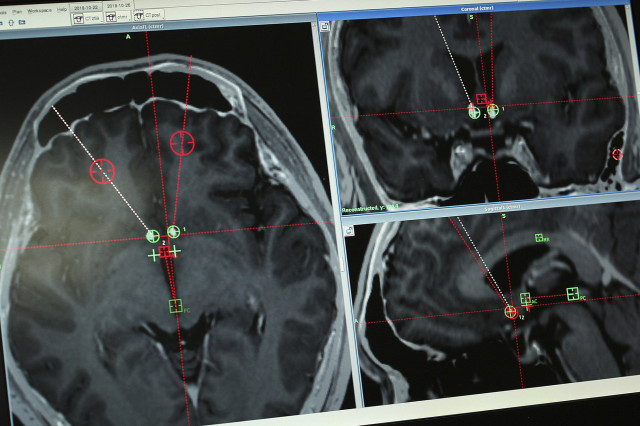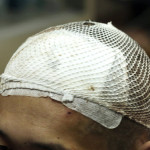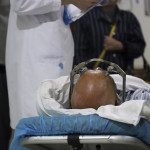 Ukraine reports 5,276 new COVID-19 cases
Ukraine reports 5,276 new COVID-19 cases
 Zelensky: Every third Ukrainian considers road construction one of greatest achievements of 2021
Zelensky: Every third Ukrainian considers road construction one of greatest achievements of 2021
 Ukraine ready to implement Minsk agreements, but Russia's desire needed - Yermak
Ukraine ready to implement Minsk agreements, but Russia's desire needed - Yermak
 Michel: EU unanimously agree to roll over economic sanctions against Russia
Michel: EU unanimously agree to roll over economic sanctions against Russia
 Actions by Ukraine's partners will help prevent worst-case scenario - Zelensky
Actions by Ukraine's partners will help prevent worst-case scenario - Zelensky
 COVID-19 in Ukraine: Health officials confirm 8,899 daily cases as of Dec 17
COVID-19 in Ukraine: Health officials confirm 8,899 daily cases as of Dec 17
 Macron tells Zelensky he declared support for Ukraine in call with Putin
Macron tells Zelensky he declared support for Ukraine in call with Putin
 Zelensky, Scholz discuss gas transit through Ukraine after 2024
Zelensky, Scholz discuss gas transit through Ukraine after 2024
 Ukraine ready for any format of talks with Russia - Zelensky
Ukraine ready for any format of talks with Russia - Zelensky
 Ukraine’s only journalist in Russia facing extremism charges - lawyer
Ukraine’s only journalist in Russia facing extremism charges - lawyer
 PM Shmyhal: First two applications for investment projects worth $96 million filed
PM Shmyhal: First two applications for investment projects worth $96 million filed
 Zelensky, PM of Italy discuss security situation around Ukraine
Zelensky, PM of Italy discuss security situation around Ukraine
 President signs off State Budget 2022
President signs off State Budget 2022
 London considering all options for responding to Russia's aggression against Ukraine
London considering all options for responding to Russia's aggression against Ukraine
 Putin, Biden to hold another round of talks
Putin, Biden to hold another round of talks
 Some 260,000 Ukrainians “victims of human trafficking” over 30 years - prosecutor general
Some 260,000 Ukrainians “victims of human trafficking” over 30 years - prosecutor general
 Ukraine plans to create center to protect energy infrastructure from cyber attacks
Ukraine plans to create center to protect energy infrastructure from cyber attacks
 No clear idea so far when Normandy Four top diplomats set to meet - German Ambassador
No clear idea so far when Normandy Four top diplomats set to meet - German Ambassador
 Ukraine receives EUR 600M in macro-financial assistance from EU
Ukraine receives EUR 600M in macro-financial assistance from EU
 Zelensky holds phone conversation with PM of Israel
Zelensky holds phone conversation with PM of Israel
 Ukraine sets new daily COVID vaccination record
Ukraine sets new daily COVID vaccination record
 MFA: European Union has not yet removed Ukraine from list of safe countries
MFA: European Union has not yet removed Ukraine from list of safe countries
 Kyiv records 1,023 new COVID-19 cases, 29 deaths
Kyiv records 1,023 new COVID-19 cases, 29 deaths
 G7 ambassadors welcome adoption of law on NABU status
G7 ambassadors welcome adoption of law on NABU status
 Ukraine can increase Covid vaccination rates to 1.5M a week – Liashko
Ukraine can increase Covid vaccination rates to 1.5M a week – Liashko
Patient Number One is a thin man, with a scabby face and bouncy knees. His head, shaved in preparation for surgery, is wrapped in a clean, white cloth.
Years of drug use cost him his wife, his money and his self-respect, before landing him in this drab yellow room at a Shanghai hospital, facing the surgeon who in 72 hours will drill two small holes in his skull and feed electrodes deep into his brain.
The hope is that technology will extinguish his addiction, quite literally, with the flip of a switch.
The treatment — deep brain stimulation — has long been used for movement disorders like Parkinson’s. Now, the first clinical trial of DBS for methamphetamine addiction is being conducted at Shanghai’s Ruijin Hospital, along with parallel trials for opioid addiction. And this troubled man is the very first patient.
The surgery involves implanting a device that acts as a kind of pacemaker for the brain, electrically stimulating targeted areas. While Western attempts to push forward with human trials of DBS for addiction have foundered, China is emerging as a hub for this research.
Scientists in Europe have struggled to recruit patients for their DBS addiction studies, and complex ethical, social and scientific questions have made it hard to push forward with this kind of work in the United States, where the devices can cost $100,000 to implant.
China has a long, if troubled, history of brain surgery for drug addiction. Even today, China’s punitive anti-drug laws can force people into years of compulsory treatment, including “rehabilitation” through labor. It has a large patient population, government funding and ambitious medical device companies ready to pay for DBS research.
There are eight registered DBS clinical trials for drug addiction being conducted in the world, according to a U.S. National Institutes of Health database. Six are in China.
But the suffering wrought by the opioid epidemic may be changing the risk-reward calculus for doctors and regulators in the United States. Now, the experimental surgery Patient Number One is about to undergo is coming to America. In February, the U.S. Food and Drug Administration greenlighted a clinical trial in West Virginia of DBS for opioid addiction.




























































































































